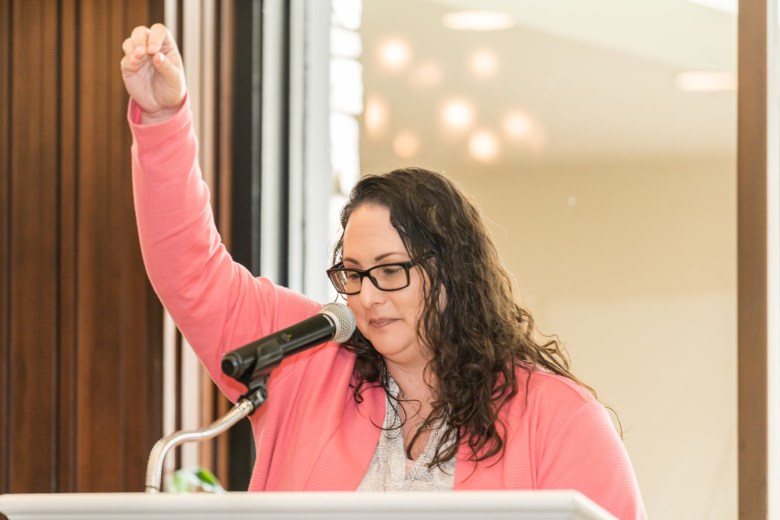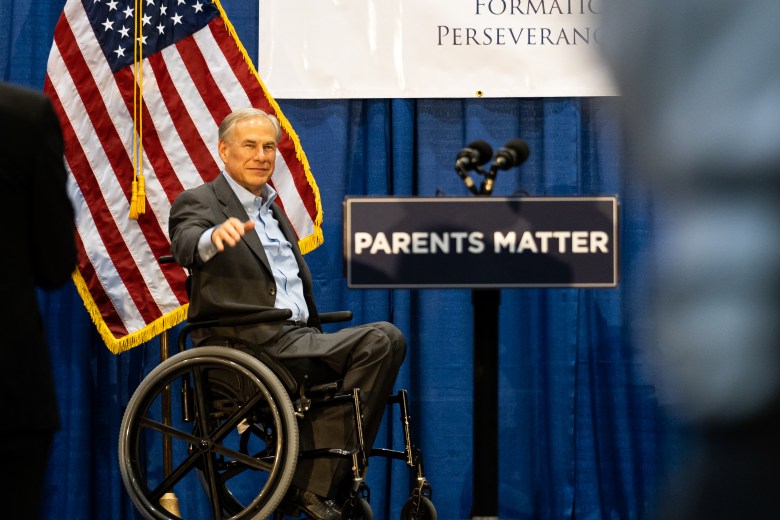Fort Worth-area districts stuck with the tab after Texas legislators say no to increasing funding for schools, teacher raises

Lake Worth ISD Superintendent Rose Mary Neshyba is staring at a $1 million — maybe even up to $2 million — deficit for next school year.
The estimate, while early, already has her looking at cuts. Neshyba cannot help but think about how her district’s situation would be different if the Texas Legislature delivered on its promise to add billions in new school funding.
“We’re having hard conversations right now behind closed doors trying to figure out how we’re going to make this budget year,” Neshyba said.
Lake Worth ISD is among the districts across Fort Worth trying to figure out how to do more with less in the 2023-24 academic year. Many districts plan to spend more than their projected revenue next school year to cover their plans for employee raises. Some face cuts, too.
Crowley ISD Superintendent Michael McFarland described the situation in school districts in Tarrant County and across Texas as unbelievable. School leaders are looking at dipping into their reserves to meet students’ needs as the state sits on a nearly $33 billion budget surplus. That does not sit well with McFarland.
“We still have paraprofessionals, and we have teachers and others who we value, and we have to compensate them — and we’re going to do it,” McFarland said. “But every time we do that, we let the state off the hook.”
No raises. No extra funding. No vouchers.
When the Legislature started in January, many superintendents and other education officials were optimistic that schools would receive part of the historic surplus.
But, 140 days later, their optimism faded.
House Bill 100 proposed allocating $4.5 billion in new funding for schools to give teachers raises and for districts to balance their budgets. The measure also would have increased the base amount of money districts receive per student from $6,160 to $6,250 in 2024 and $6,500 in 2025. The House approved it in a 141-3 vote and handed it off to the Senate.
In a Hail Mary move, senators transformed HB 100 into a vehicle to establish an education savings account program, a policy that would give parents public dollars to fund their children’s private school tuition. The last-minute effort came after the voucher-like program died in a House committee.
Neither the funding nor education savings account passed by the time the first session of the Legislature ended in late May.
“In a good faith effort, the House continued to negotiate with the Senate. but in the end the Senate would not negotiate at all. It was a universal ESA (education savings account) or nothing,” state Rep. Ken King, a Canadian Republican who authored HB 100, said in a statement issued shortly before the Legislature ended. “I am truly sorry HB 100 did not pass, but in the end I believe students, teachers, and schools are better off with current law than they would be if we accept what the Senate is offering.”

Some legislators’ actions speak louder than their words for Fort Worth ISD Superintendent Angélica Ramsey. She does not see education as a priority for many lawmakers in Austin.
“The budget of any organization, whether it’s the state of Texas or Fort Worth ISD, speaks to what your priorities are, and it was very disappointing to see that teachers were not a priority for the Legislature,” Ramsey said.
Northwest ISD Superintendent Mark Foust saw lawmakers embracing partisan politics and holding hostage public school funding increases in exchange for the proposed education savings accounts program.
“With no agreement reached between the Texas House and Senate, we were left with only minor increases to our funding that don’t adequately address rapid inflation in our expenses or much needed salary increases,” Foust said in an email to teachers in mid-June.
Pay raises coming with deficits
Across Tarrant County, districts are working on their budgets for the upcoming school year. Many of them plan to give their teachers raises, but at a cost: deficit spending.
Fort Worth ISD officials are planning to give employees a 3% raise across the board. The proposal is expected to cost about $17.3 million.
Ramsey expects to use some of Fort Worth ISD’s $341 million in reserves to cover its estimated $45.3 million shortfall.
In Lake Worth ISD, Neshyba anticipates having to dip into her district’s reserves of $12 million to cover the projected deficit. She doesn’t want to. She’d rather leave the reserves alone in case of a major emergency.
But Lake Worth ISD has to remain competitive to lure teachers to its classrooms, so Neshyba plans to propose a salary increase later this summer.
Northwest ISD also plans to give its teachers a raise. The $5 million proposal would give teachers a 3% midpoint raise, a move that would increase the salaries of most, if not all,educators.
But Foust pointed out the decision comes at cost: a $2.1 million deficit for the 2023-24 school year budget. Northwest ISD started the 2022-23 school year with nearly $92 million in reserves, according to district documents.
Crowley ISD is considering pay raises, too. Administration proposed three packages:
- The first proposes a minimum $15-an-hour wage for paraprofessionals; an adjustment for hourly workers currently making more than that; and a 3% raise for all other employees. The package would cost $5.4 million.
- The second proposal is $2 million and would only provide a pay bump to paraprofessionals.
- The third option is no raises for anyone.
Whatever option the school board backs is expected to result in a $3.5 million deficit, according to Crowley ISD.
“However, that may put us in jeopardy when we talk about long-term financial stability because of what the state has chosen not to do,” McFarland said.
The district already is preparing to cut positions that are vacant and hold back from proposing much-needed jobs, such as those that deal with students’ mental health.
‘So many strings attached’
Even through their disappointment, superintendents still hope the Legislature will fulfill their promises from earlier this year.
Gov. Greg Abbott called lawmakers back to the state Capitol for a special legislative session focused on property tax relief hours after their first round ended on May 29. Superintendents want Abbott to force lawmakers back to Austin sometime this year to address school funding.
“We’re hoping they reconvene and provide public education with what’s needed,” White Settlement ISD Superintendent Frank Molinar said.

During a June 12 press conference in Austin, Abbott hinted at a future special session coming soon. However, superintendents are likely to bristle at what he plans for the docket: Tying the passage of education savings accounts to more funding for schools.
“We’re not facing an either-or choice,” Abbott said during an April rally in Fort Worth. “The reality is, we can have both.”
Neshyba, the Lake Worth ISD superintendent, is not optimistic about a likely special session. If lawmakers increase funding, Neshyba is not sure if it will be worth the headache for school districts across the state.
“It seems like everything we get, there are so many strings attached that it almost requires more personnel to manage all the requirements for that extra money,” Neshyba said. “My prayer is that our leaders do what is right for public education.”
So far, Neshyba hasn’t seen the Legislature nor other top Texas elected officials do that. Instead, she sees the state’s leaders touting the strength of the Lone Star State’s economy — and yet many public schools are struggling to educate their students.
State leaders are not putting their money where their mouths are, she said.
Neshyba says she plans to put her 3,600 students first in Lake Worth ISD’s budget — even if it means making some cuts.
Jacob Sanchez is an enterprise journalist for the Fort Worth Report. Contact him at jacob.sanchez@fortworthreport.org or via Twitter. At the Fort Worth Report, news decisions are made independently of our board members and financial supporters. Read more about our editorial independence policy here.






